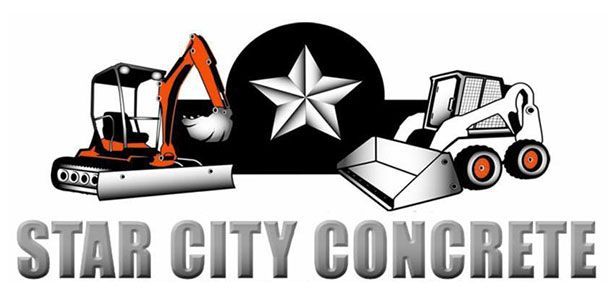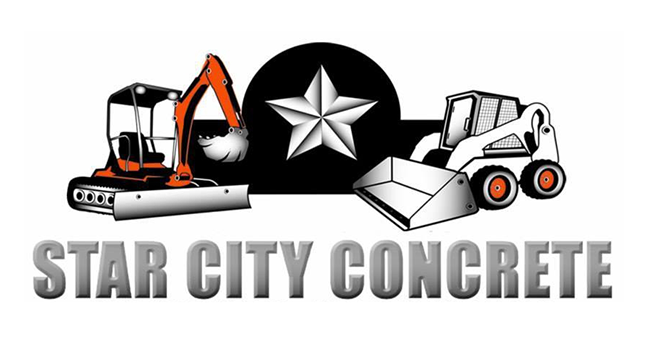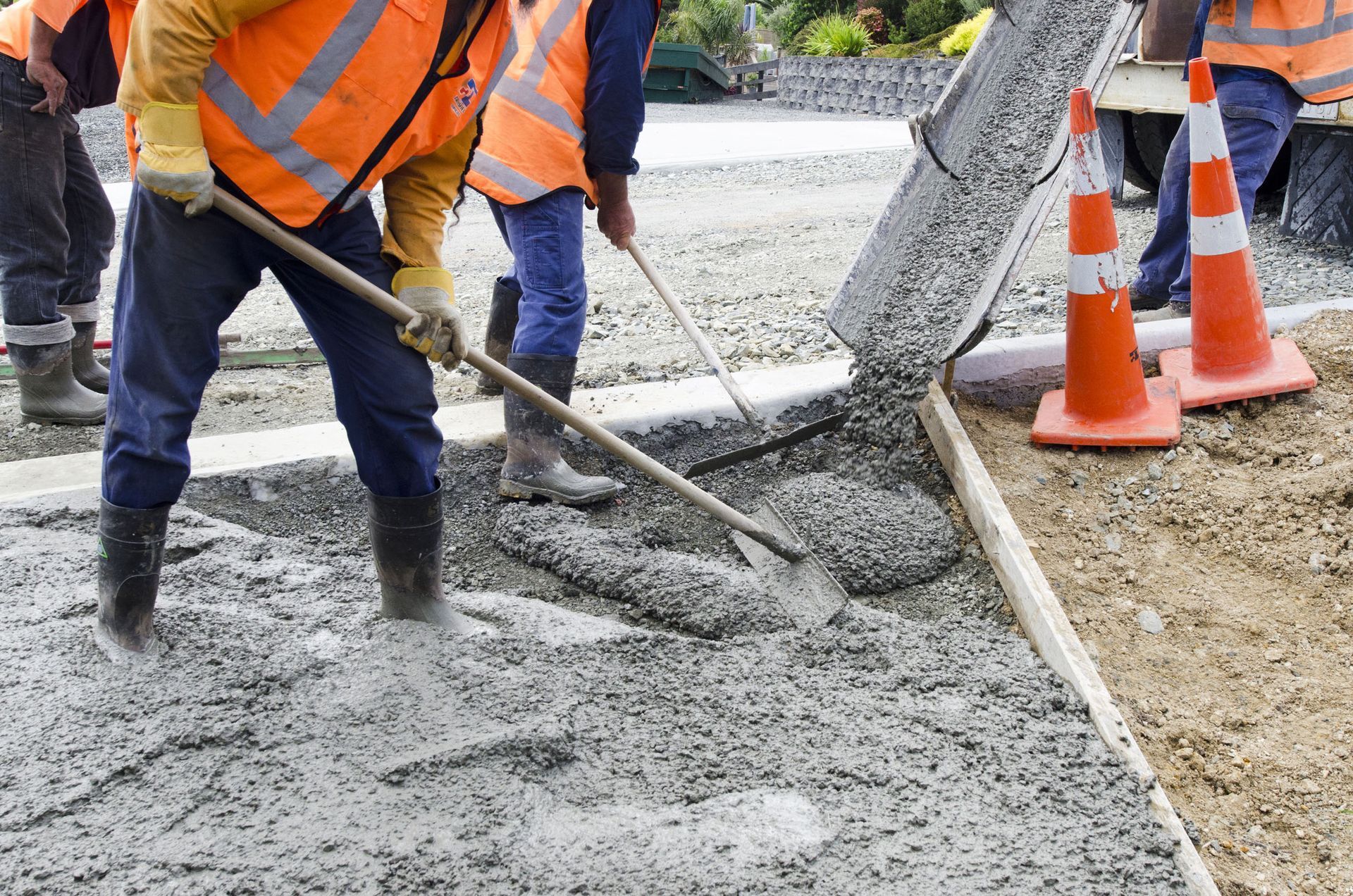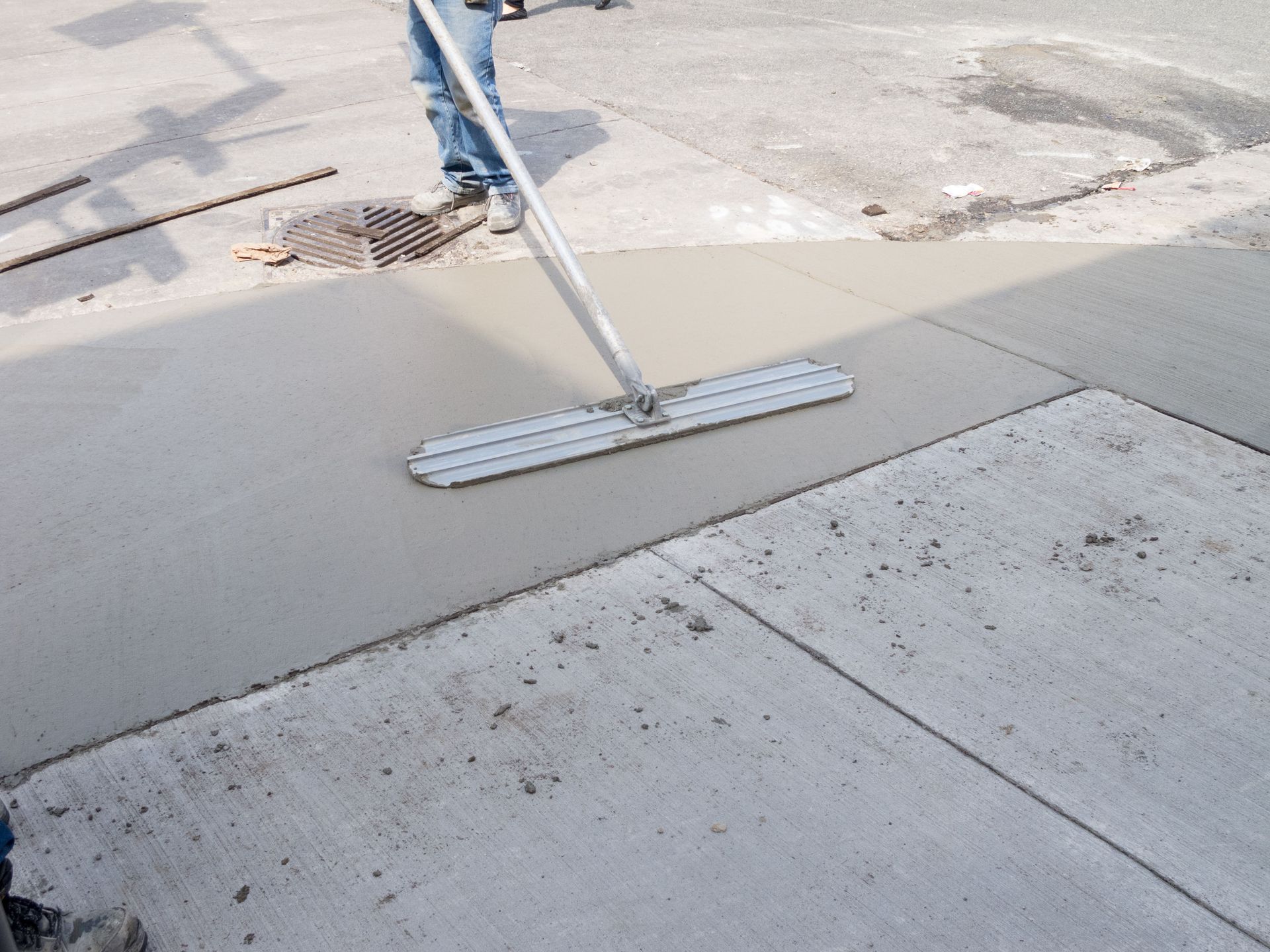Understanding the Role of a Concrete Contractor
Concrete remains one of the most important materials in modern construction, forming the foundation for everything from residential driveways and patios to industrial flooring, commercial facades, and multi-level buildings. A concrete contractor is the professional responsible for transforming this versatile material into functional, durable, and visually appealing structures. Their specialized training and hands-on experience allow them to manage projects of all sizes—from small home improvements to large-scale commercial developments—with precision and expertise.
According to Discovery, concrete floors were discovered at the Palace of Tiryns in Greece dating back around 3,300 years, proving that concrete has been a cornerstone of durable construction since ancient times. This historical perspective underscores how concrete has withstood centuries of wear and environmental stress, a testament to both the material and the careful workmanship required to apply it correctly. Modern concrete contractors continue this legacy, combining ancient principles of durability with contemporary techniques and innovations.
Concrete contractors manage every stage of a project. From site preparation and excavation to forming molds, mixing, pouring, curing, and finishing, they ensure each step meets strict quality standards. Their work also includes scheduling deliveries, coordinating with other trades such as plumbing or electrical, and maintaining compliance with building codes and safety regulations. Their ability to merge technical skill with project management ensures projects are completed efficiently, safely, and on schedule.
Beyond technical execution, a concrete contractor also provides valuable guidance on material selection, reinforcement methods, and design considerations. They can recommend the best mix for specific applications, suggest finishing techniques to achieve both aesthetic and functional goals, and anticipate challenges like drainage issues or soil instability.This foresight helps prevent costly errors and ensures long-lasting results.
Selecting the Right Concrete Contractor
Choosing the right concrete contractor is a critical step in ensuring your project's success. It begins with thorough research and verification of credentials. Reputable contractors should hold proper licensing, certifications, and insurance coverage, protecting both clients and workers. Membership in professional trade associations often indicates a commitment to quality, ongoing training, and adherence to industry standards.
When evaluating potential contractors, it is important to review detailed project proposals, not just pricing. The lowest bid may not always provide the best value. Consider quality of materials, construction methods, timelines, and communication practices. Contractors who provide transparent estimates and clear documentation signal professionalism and reliability.
Experience is another essential factor. Contractors with a proven track record in similar projects bring insight into potential challenges and solutions. Visual portfolios and client testimonials can provide a clear picture of past successes and the contractor's ability to handle complex or unique requirements.
Finally, reviewing and understanding contract terms is vital. Agreements should outline project scope, materials, timelines, warranties, and payment schedules. Written documentation ensures accountability and minimizes misunderstandings, establishing a solid foundation for a successful working relationship.
Ensuring Quality and Durability
Hiring a professional concrete contractor ensures structural integrity, aesthetic appeal, and long-term durability while optimizing efficiency.
Concrete strength and lifespan depend heavily on proper mixing, placement, and curing techniques. Improper handling can lead to cracks, uneven surfaces, or early deterioration, which may compromise both safety and appearance. Contractors employ tested methods and precise measurements to prevent such issues and create a uniform, durable surface.
Professional contractors also improve project efficiency. They bring specialized tools, machinery, and finishing equipment that allow for faster, more precise work. Their experience in managing workflow reduces waste and unnecessary costs, making the project more cost-effective without sacrificing quality.
Safety and compliance are also critical advantages of hiring a skilled contractor. They remain up-to-date with local building codes, environmental standards, and industry best practices, ensuring every stage of construction is safe for workers, residents, and the surrounding environment.
Additionally, contractors can advise on innovative solutions such as fiber reinforcement, high-performance mixes, or decorative finishes, elevating both function and appearance while prolonging the life of the concrete installation.
Maximizing Concrete Applications
Concrete is an incredibly versatile material that spans residential, commercial, and industrial applications. Its durability, strength, and adaptability make it suitable for nearly any structural or decorative purpose.
In residential projects, concrete is often used for driveways, patios, walkways, pool decks, and interior or exterior flooring. Skilled contractors can transform these functional surfaces into attractive, long-lasting features using techniques such as stamped, stained, or polished concrete, providing a balance of style and durability.
In commercial and industrial settings, concrete is essential for foundational slabs, load-bearing walls, structural frames, and exterior facades. Contractors ensure that these elements meet strict engineering standards, withstand heavy use, and maintain visual appeal over time. Large-scale projects often require precise coordination, careful curing, and specialized reinforcement, all of which fall within a contractor's expertise.
Modern decorative techniques such as scoring, engraving, color tinting, and polished surfaces allow concrete to serve as both a structural and aesthetic element. Contractors also handle repair and maintenance tasks, including patching cracks, resurfacing worn areas, and reinforcing weakened structures. Sustainable practices, including the use of recycled aggregates and low-emission materials, further enhance concrete's long-term value and environmental friendliness.
Managing the Construction Process
Working with a concrete contractor involves a structured, step-by-step process designed to ensure precision and quality.
Projects begin with an initial consultation and site evaluation to determine project scope, client preferences, and potential obstacles. At this stage, contractors provide recommendations on materials, finishing options, and project timelines, laying the groundwork for a successful project.
Next, the design and planning phase includes preparing detailed layouts, reinforcement plans, and curing schedules. Contractors coordinate with suppliers and subcontractors to ensure materials arrive on time and processes run smoothly.
During the pouring and curing phase, precision is critical. Contractors monitor weather conditions, adjust techniques as needed, and employ proper curing methods to avoid cracking or uneven surfaces. After curing, finishing touches such as smoothing, polishing, or decorative treatments are applied, followed by thorough inspections to confirm quality standards are met.
Finally, post-project support, including maintenance advice and warranty coverage, ensures clients receive long-term protection and guidance, maintaining both function and appearance of the concrete installation.
Overcoming Project Challenges
Concrete construction presents a variety of challenges that can affect timing, quality, and cost. Experienced concrete contractors are adept at managing these obstacles.
Weather can significantly impact curing times and surface quality. Contractors plan work around forecasts and use protective measures, such as blankets or tents, to mitigate adverse conditions.
Unexpected site issues, like unstable soil or hidden utility lines, are addressed through contingency planning and collaboration with engineers or local authorities. Contractors ability to adapt ensures projects stay on schedule and budget.
Effective communication is also key. Contractors provide regular updates, adjust plans as needed, and maintain transparency with clients to ensure expectations are met. They also navigate delays caused by permitting processes, supply chain disruptions, or regulatory requirements efficiently, keeping the project moving forward.
Partnering with a knowledgeable concrete contractor enhances the quality, longevity, and visual appeal of any project. Professional expertise ensures structures—whether residential driveways, commercial foundations, or decorative concrete features—are built to last.
Contractors help avoid mistakes, optimize material use, and improve project efficiency. Innovative solutions, sustainable practices, and decorative techniques further increase property value and functional longevity.
Reach out to a professional concrete contractor at Star City Concrete LLC today for a project that delivers lasting durability, top-tier safety, and exceptional results from start to finish.





Share On: